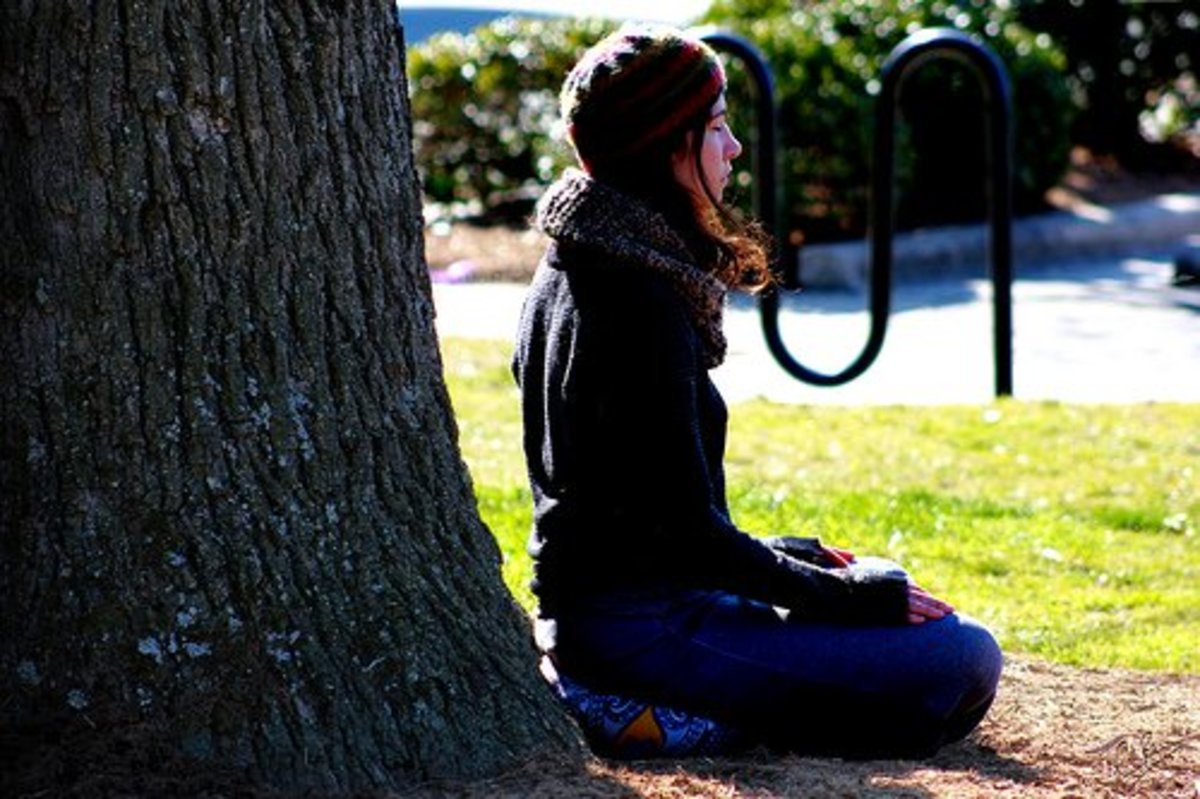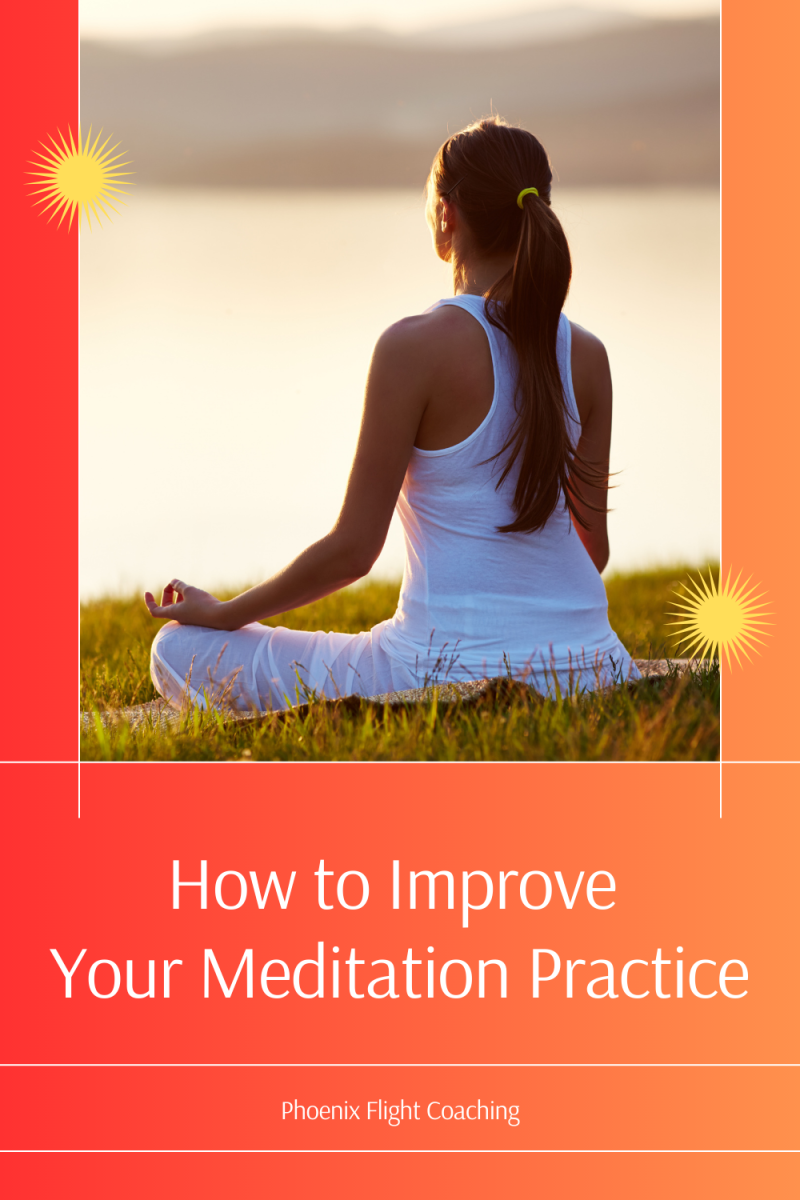Meditation to Reduce Stress
Stress is something that everybody has to deal with at some point or another, whether it's stress at work or in the home, stress related to financial concerns, stress brought on by relationship issues or stress connected with how we feel about ourselves.

It's easy to let things get on top of you until you feel like you're going to explode. And the more stress you're under, the quicker you respond to situations that don't go the way you hoped they would. Even little things can contribute to our overall feeling of being drained, being unable to cope, feeling so much pressure that there seems to be no way to escape, as if we're trapped in a vicious circle that can ultimately spiral out of control.
With so many technological advances in recent years, you'd think our lives would have gotten easier. But that's not necessarily the case. We still have to work, to earn money, to provide for our families and loved ones, to deal with difficult people, to try and stay healthy, to plan ahead while still attempting to live an enjoyable and rewarding life. With so much going on around us, it's not always easy to find time to switch off, forget about the daily grind and just let ourselves be.
So what exactly is stress, and how can it have such a powerful impact on everything we do?
What is Stress?
Stress can be defined as the way we react to any change that provokes a mental, emotional, or physical response or adjustment.
The Truth About Stress
Stress is not a disease or a condition. In fact, it's actually a good thing, and here's why.
When stress strikes it isn't a sign that you're unable to deal with a situation. Stress is a reaction that at one time in our lives was as important as breathing or being able to walk. It's part of the "fight-or-flight" mechanism designed to keep us safe from harm and danger.
When we're stressed, hormones get released from the adrenal glands to help us cope with whatever is happening. One of the hormones in question is adrenaline, and that's where the phrase "adrenaline rush" comes from. During stressful situations this extra adrenaline causes physiological changes to occur so that we're prepared for whatever we need to do - i.e. fight or flight -- including:
- Increased heart rate
- Increased blood pressure
- Increased blood flow to the muscles
- Increased rate of breathing
It's no wonder, then, that stress can have such a potent effect on our bodies and minds. But is there a way to deal with the stress, even if it's essential on one level? Before we look at how to cope effectively with it, let's find out what types of things cause stress in the first place.

Typical Causes of Stress
Why do we get stressed? Stress affects each of us in different ways. Here are some of the more common causes of stress that most people are probably familiar with:
- Uncertainty - a change in the order of things; not knowing what's going to happen; an unexpected surprise; any of these can throw your mind into chaos and elicit the stress response.
- Fear - whether the fear is real or imagined it can bring about exactly the same symptoms.
- Danger or threat - stress will mount up if your life, your job, your income or your loved ones are threatened.
- Illness - when you're not as healthy as you should be it's difficult to function on your usual level; and that can be enough to stress you out.
- Disharmony - arguments at work, at home, with a friend or a loved one can be highly stressful and leave you unable to focus on the day to day things.
- Changes of routine - a new job, different working hours, marriage, divorce, the arrival of a baby, moving house; these are all well-known scenarios that force us into stressful situations.
Unfortunately stress isn't confined to a simple list of possibilities. Almost anything that happens to you in your normal day can become stressful if you let it. In the workplace alone the potential for stress-inducing situations is legion.
It's impossible to eliminate stress from your life, but it is possible to develop highly effective coping mechanisms. And one of the best and easiest to implement is the practice of meditation.
What is Meditation?
Meditation is a technique for switching off the mind from the everyday world in order to promote inner awareness and relaxation.
Meditate Your Stress Away
One of the most common methods for relieving stress - and one promoted by physicians and therapists all over the world - is meditation.
Unfortunately, meditation gets a bad press from people who don't understand it. It isn't something you can only do under the guidance of a guru or swami. It isn't necessary to go on a retreat to some distant Himalayan mountain or Tibetan monastery. It's simply a technique for turning your attention away from the cares and concerns of the everyday world to enable you to let go of all the stress that's been building up inside you.
At its most basic level, meditation is just another way to relax. It helps you slow down and think about things in a calm and peaceful environment, rather than having to juggle your thoughts as you go about the multitude of daily activities that make up your life. There are many different ways to meditate, too, but one of the most common is what is known as the relaxation response.

Meditation through the Relaxation Response
As you might have guessed, the relaxation response is designed to work in the opposite way as the fight-or-flight response. In other words, it should help you to:
- Slow down your breathing
- Slow down your heart rate
- Slow down your blood flow
- Decrease your blood pressure
It's been suggested that performing the relaxation response technique once a day can lead to a whole host of benefits, from simply lifting your mood to lowering your blood pressure to reducing your usual stress levels. Researchers also believe that meditation in general has the ability to slow the aging process, probably because it gives our bodies and minds the chance to recover from the daily batterings they take.
Here's a simple guide to how to meditate using the relaxation response method:
- Sit in a quiet place where you won't be distracted.
- Close your eyes and focus on relaxing your muscles from the tip of your toes up to the top of your head.
- Breathe slowly and steadily through your nose.
- Repeat a word or phrase over and over in your head. This can be a syllable, a sound, or anything that works for you.
- Continue doing this for between 10 to 20 minutes, letting whatever thoughts you have come and go.
- When you're finished, remain seated for a few moments with your eyes closed, and then open your eyes and get on with your day.
Everyday Meditation Techniques
In order to get the benefit from meditation, you need to do it on a regular basis. Musicians practice scales, basketball players practice shooting hoops, artists practice mixing colors and comedians practice delivering their lines. Everything you do improves with practice, and the same goes for meditation.
The problem with meditation is that it can be difficult to fit it into your daily routine. Some people might prefer meditating in the morning, while others might find it more conducive in the evening. Finding a space that's quiet and unoccupied where you're not going to be disturbed can also be a challenge. And some days you simply won't feel like you have the time to spare.
Remember that meditation isn't one thing. There are many ways to meditate, which after all is simply a fancy name for relaxing. Here are a few things you can try if the relaxation response method is impractical:
- Go for a long walk - on your own or with the dog
- Soak in the bath for as long as you can
- Listen to your favorite music through headphones so nothing else interferes with your enjoyment
- Sit alone for at least a few minutes every day - on a bench during your lunch break or after work in the yard
- Focus on your breathing for 5 minutes wherever you are - simply close your eyes and concentrate on breathing in and out slowly and steadily
You can also mix these up to provide more of a distraction-free experience, such as listening to music when you go for a walk, or while you're waiting in line at the bank or post office. Whatever you can do to take your mind off the trials and tribulations of everyday living will enable you to slow down, calm your body and mind, and help you eliminate some of the stress.
About JohnMello
I'm a freelance writer, author, musician and composer. Visit my self help blog at http://theselfhelpzone.blogspot.co.uk/ for lots of freebies.
Stress & Meditation Quiz
view quiz statisticsMore Stress-Related Hubs
- Stress Management Basics
Too much stress making your life a misery? Discover some basic and sensible ways to keep your stress levels under control! - Awesome Stress Relief Techniques
Stress is a part of modern life, like it or not. Here are some techniques you can use to help you cope with it, even if you can't get rid of it completely.








